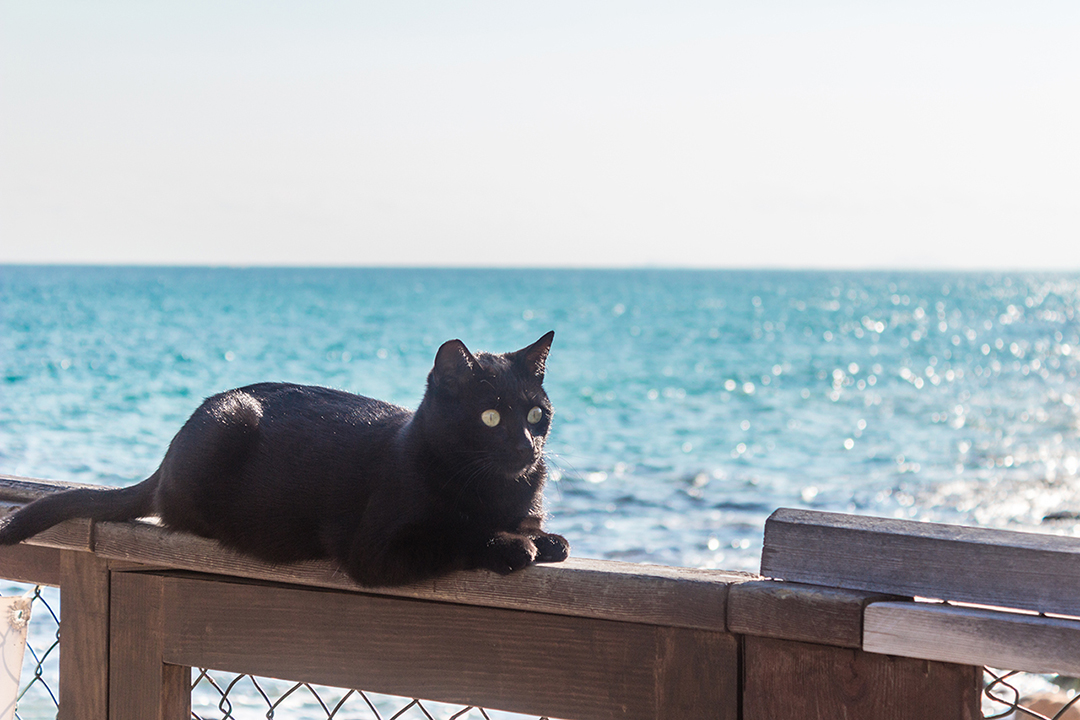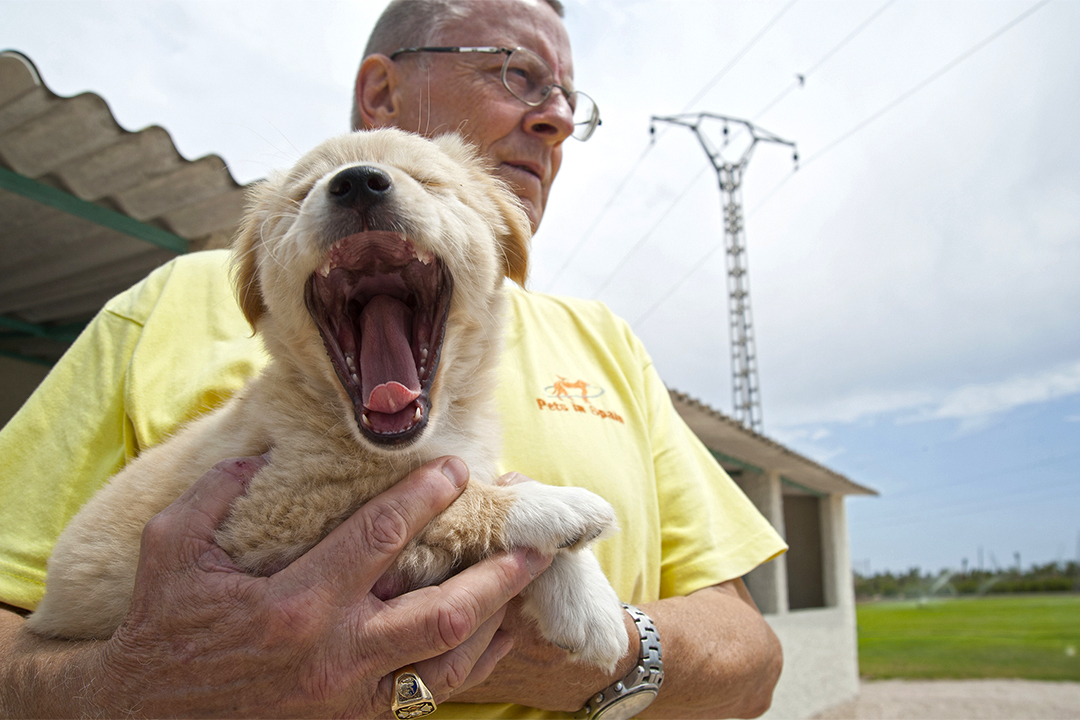EARLIER THIS WEEK SPAIN ratified an EU animal protection treaty more than 30 years after it was issued by the Council of Europe. The new accord, the European Convention for the Protection of Pet Animals, was introduced by the EU on 13th November 1987.
It sought to implement additional measures of protection for any animal which might usually be considered a domestic pet and introduced new rights and responsibilities for animals and their owners.
Ratification of the European Council's convention was originally proposed in Spain in 2007, but the text didn't pass into Spanish law until Thursday.
The new legal provisions provide significant safeguards for pets in Spain, banning any unnecessary medical procedure such as the docking of tails, clipping ears, or removing teeth or claws without genuine medical grounds.

New animal law, protection for domestic pets in Spain
Only a veterinarian can legally euthanize a pet animal, and the legislation prohibits any other person from causing the death of a pet either deliberately or through negligence, except in legally mandated circumstances.
It will also be against the law to offer pets as prizes, or to sell pet animals to children under the age of 16, and creates new offences for causing a pet unnecessary pain or purposely abandoning an animal.
The new animal law applies to all cats and dogs across the Iberian peninsula, including stray and homeless pets. Autonomous communities nationwide have been checking local legislation to ensure that it complies with the new law.
In Torrevieja, the local town hall has set up Proyecto CES Torrevieja, a new initiative to manage and care for the colonies of stray cats around the city.
Established last year and staffed by a team of 140 volunteer animal carers, the organisation provides food, water, and safe areas for the cats to live, and carries out a program of sterilisation to control the numbers of feral felines.

Torrevieja local town hall responds to new animal law
Subsidised in part by the Provincial Council, the organisation has sterilised more than 500 urban cats.
Cats with a placid and friendly nature that might be suitable for domestic living are placed in foster care through a network of animal shelters and local charities, with the ultimate aim of finding permanent homes.
Mark Lewis, who established the registered animal charity Pets in Spain more than ten years ago, said “We are so pleased that this legislation is changing the way people think about animal care in Spain”.
“A new animal law which places an emphasis on responsible ownership and care is much needed, and we're hoping that with the assistance of municipal authorities, we can help to improve the prospects of homeless and abandoned animals across the Costa Blanca” he added.
Looking for holiday ideas and travel inspiration? Find out more about our favourite recommended things to do on the Orihuela Costa or join the La Zenia community Facebook group and find out what's going on in the local area.
Photo credit: LaZenia.com





I have neighbour’s who have 3 dogs and many cats . The house is in a very bad state with dog poo everywhere which in this heat becoming very smelly. He also has loads of cats that he doesn’t look after as they are coming into my house looking for food they are very skinny and I have seen 3 kittens also very skinny. I have 2 dogs and 2 cats of my own . What can I do about my neighbour’s animals as I know he is not caring for them probably and there is going to be even more cats as he does not take them to the vets .
Hi Debbie, my advice would be to seek advice from a local animal charity. They may be able to approach your neighbour on your behalf and suggest ways in which the general standards of animal care could be improved. They can also assist with the neutering of animals should your neighbours be unable or unwilling to pay for the process. You can find your local animal charity in your area on Facebook.
Could you inform us on the legal standing regarding feeding the feral cats on the Orihuela Costa namely Cabo Roig Campoamor. Information on this would be greatly appreciated.
Hi! Contact with Colonias Felinias Dehesa de. Campoamor . They can make you an official registretef paper that you are allowed to feed the cats.
Hi! Contact with Colonias Felinias Dehesa de. Campoamor . They can make you an official registretef paper that you are allowed to feed the cats.
Hi Bob and Brenda, I believe that feeding feral cats in a public place is prohibited by local legislation. It is my understanding that non-domesticated cats, that is, cats not specifically under the care of a person and kept as a pet, are classed as wild animals. Their feeding is prohibited for the protection of public health and sanitary reasons, and for the protection of the cats themselves. However, you can feed any cat you choose within the confines of your private property (whether you “own” that cat or not), and the Town Hall will issue permits to people allowing them to feed cats in public provided that those people have an association with a registered Spanish animal charity. I am not a lawyer nor am I legally qualified to provide advice in any legal capacity whatsoever, however, I should disclose that I have personally been fined 60,00 € for feeding cats in public.
Colonias Felinas Dehesa de Campoamor
My daughter has just moved into a new property but has found a large family of 1 mother cat with lots of kittens!
She lives on the lsland of ibiza so can you recommend any local animal charities there that can help with neutering and rehoming the kitties?
Can I have some urgent advice please. We are in campoamor at our holiday home and the house opposite is rarely used by the owner and a dog has been left outside the property for the last four days. The dog is distressed and ill barely able to bark and is whimpering in and off. Nobody has been to feed the dog or provide water. It has been reported to the police but no response.
Hi Lynn, please get in-touch with Little Pod Association or one of the local animal charities in the area. You´ll find their details on the internet or Facebook and I have no doubts they´ll be able to assist you. Thanks.
A very friendly little cat has been living in the street near our house in Punta Prima for the past month for the last two weeks almost he has followed us home now regularly sits in the garden we have given him some food but he seems to have been so hungry that he can’t eat much. We have to go home to Ireland tomorrow a. Nd do not wish to just abandon him can you advise I have tried ringing some animal welfare but no reply as yet. Thank you
Hi Catherine, I would ask you to get in-touch with members of our Orihuela Costa local group on Facebook. I´m sure they will have recommendations … https://www.facebook.com/groups/1591017691013159
Can you please tell me what the law is in Spain regards domastic outdoor cats? Are they allowed to walk freely?
My neigbour is sending threatening messages to me became my cat is walking on her property and is afraid he will break her outdoor furnitures. Am l responseble if he does harm to them? What evidence does she need?
I cant stop my cat going outdoor, nor where he goes?!
Best regards
Mona
Hi Mona, there is no legislation in Spain that prevents domestic cats from walking freely, however, as an owner you are responsible for any damage caused by your pets. If you have concerns, I would advise you to check your home insurance to make sure that your third-party liability covers you for damage that might be caused by your pets. If it does not, you can ask your insurer to add cover for a small additional cost. That way, any disagreement about the burden of proof will be between your neighbour and your insurance company.
Hi
I have a feral cat who’s leg I am treating for a dog bite. It needs more medical attention. The cat is not mine but a neighbour . As its feral would I be able to take it to the vets ?. Or have to inform the neighbour who feeds them
Hi Deb, if you know the cat´s owner I would recommend speaking with them first.
Is there any limit to the number of domestic cats someone can have on there own property.
Technically no, there is no national legislation in place in Spain that limits the number of animals that may be kept on private property. However, some town halls may choose to apply local limits, and keeping a large number of pets in cramped or unsanitary conditions is likely to lead to legal action – purely for the protection of the animals. Different rules apply to people that keep dogs or cats for economic reasons.
I have been rescuing cats in Spain, neutering adults and homing kittens, for over 15yrs, and I’m a registered cat feeder in Torrevieja.
I have been feeding a couple of adult cats in the garden of a house I used to live in. Recently a new woman, that lives opposite, has locked me out of the garden, and I’m forced to feed them on the street. There are beds and shelters in the garden for them that I can’t get to. Upset.
Since my cat of 18 years died last year I have been unindated with ferral cats, namely 2 that were abandoned by my neighbour, then a pregnant mum who had 5 kittens and another cat that I think was dumped outside my home, that’s 9 ferral cats that are now resident in and around my property, they are all feed twice daily and occasionally wormed and front line when I can catch them. Now 2 days ago another female adult and her kitten turned up, so I gave them some food, I contacted the local ferral cat association and between us we trapped the 2 cats and had them neutered which was fortunate as the female adult was holding 5 kittens. The FCA have now returned the cats to my house, they are not my cats and I can not cope physically or financially with anymore, what do I do? Please advise